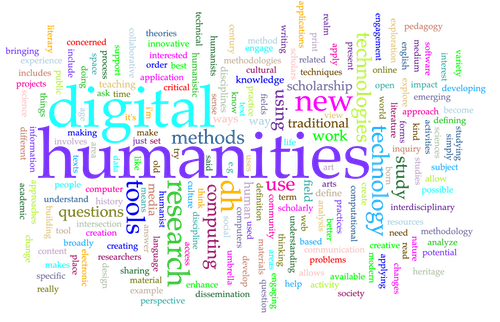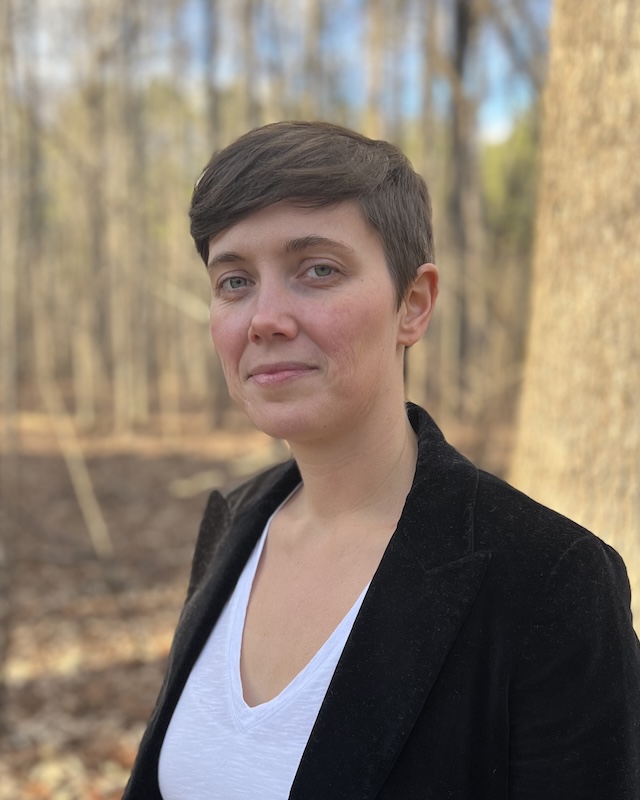Work with us to
- plan, sustain, & preserve collaborative digital projects
- identify suitable methods & platforms
- build & analyze collections of humanistic data
- address ethical concerns about accessibility, collaboration, technology, & impact
Get started | Schedule a consult | Subscribe to our Newsletter | Attend a workshop | Learn about projects
Upcoming Workshops
Undergraduate Writing Accountability Group (UWAG)

Attention undergraduates! Working on an honors thesis or other writing project?
The Undergraduate Writing Accountability Group (UWAG), a weekly workshop offered by the TWP Writing Studio, will keep you motivated and get you to the finish line!
Join other students for a weekly check-in and Friday writing sessions from 3:00–6:00PM.
To join, please email writingstudio@duke.edu. For more information, please visit twp.duke.edu/undergraduate-writing-accountability-group.
This series is co-sponsored by Duke University Libraries.
Graduate Writing Lab (GWL)

Grad students, working on your thesis/dissertation, conference presentation, or term paper? Come drop by and get assistance from graduate writing consultants.
The Graduate Writing Lab, a partnership between the TWP Writing Studio and The Graduate School, is an in-person writing group that offers regular accountability and catered feedback for graduate-student writers.
In Spring 2026, the GWL will be meeting:
- On Tuesdays from 10am-1pm in the Murthy Digital Studio (Bostock 121) and on Zoom
- On Wednesdays from 2-5pm in the Murthy Digital Studio (Bostock 121) and on Zoom
If you have questions, please email writingstudio@duke.edu. For more information, please visit twp.duke.edu/twp-writing-studio/graduate-writing-lab.
This series is co-sponsored by Duke University Libraries.
Graduate Writing Lab (GWL)

Grad students, working on your thesis/dissertation, conference presentation, or term paper? Come drop by and get assistance from graduate writing consultants.
The Graduate Writing Lab, a partnership between the TWP Writing Studio and The Graduate School, is an in-person writing group that offers regular accountability and catered feedback for graduate-student writers.
In Spring 2026, the GWL will be meeting:
- On Tuesdays from 10am-1pm in the Murthy Digital Studio (Bostock 121) and on Zoom
- On Wednesdays from 2-5pm in the Murthy Digital Studio (Bostock 121) and on Zoom
If you have questions, please email writingstudio@duke.edu. For more information, please visit twp.duke.edu/twp-writing-studio/graduate-writing-lab.
This series is co-sponsored by Duke University Libraries.
Write Night

Join the TWP Writing Studio and Duke University Libraries to make progress on your writing and research! Enjoy free cozy drinks and snacks, along with walk-in mini writing consultations, research support from subject librarians, and designated community and quiet writing spaces. With any writing project in any discipline at any stage of your writing process, we’re here to help. Open to all undergraduate and graduate writers.
Date: Wednesday, February 11th, 2026
Time: 6:00–10:00 pm
Location: Bostock Library—The EDGE Lounge
Campus: West Campus
Undergraduate Writing Accountability Group (UWAG)

Attention undergraduates! Working on an honors thesis or other writing project?
The Undergraduate Writing Accountability Group (UWAG), a weekly workshop offered by the TWP Writing Studio, will keep you motivated and get you to the finish line!
Join other students for a weekly check-in and Friday writing sessions from 3:00–6:00PM.
To join, please email writingstudio@duke.edu. For more information, please visit twp.duke.edu/undergraduate-writing-accountability-group.
This series is co-sponsored by Duke University Libraries.
Graduate Writing Lab (GWL)

Grad students, working on your thesis/dissertation, conference presentation, or term paper? Come drop by and get assistance from graduate writing consultants.
The Graduate Writing Lab, a partnership between the TWP Writing Studio and The Graduate School, is an in-person writing group that offers regular accountability and catered feedback for graduate-student writers.
In Spring 2026, the GWL will be meeting:
- On Tuesdays from 10am-1pm in the Murthy Digital Studio (Bostock 121) and on Zoom
- On Wednesdays from 2-5pm in the Murthy Digital Studio (Bostock 121) and on Zoom
If you have questions, please email writingstudio@duke.edu. For more information, please visit twp.duke.edu/twp-writing-studio/graduate-writing-lab.
This series is co-sponsored by Duke University Libraries.
About
Hannah L. Jacobs is Duke Libraries’ Digital Humanities Consultant. She consults and collaborates with staff, students, and faculty on digital humanities topics broadly. She also connects humanities researchers with and advocates for technological resources on campus. She offers consultations on digital project planning and building, as well as best practices for a wide range of technologically-engaged research. She also offers instruction in a broad range of digital humanities topics and can work with researchers, instructors, and units to design area-specific workshops.
